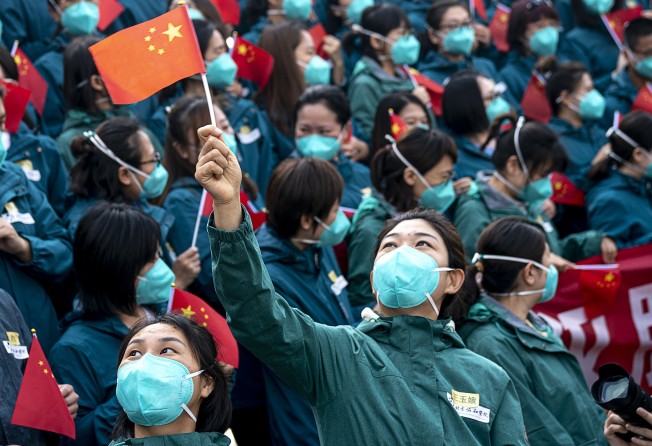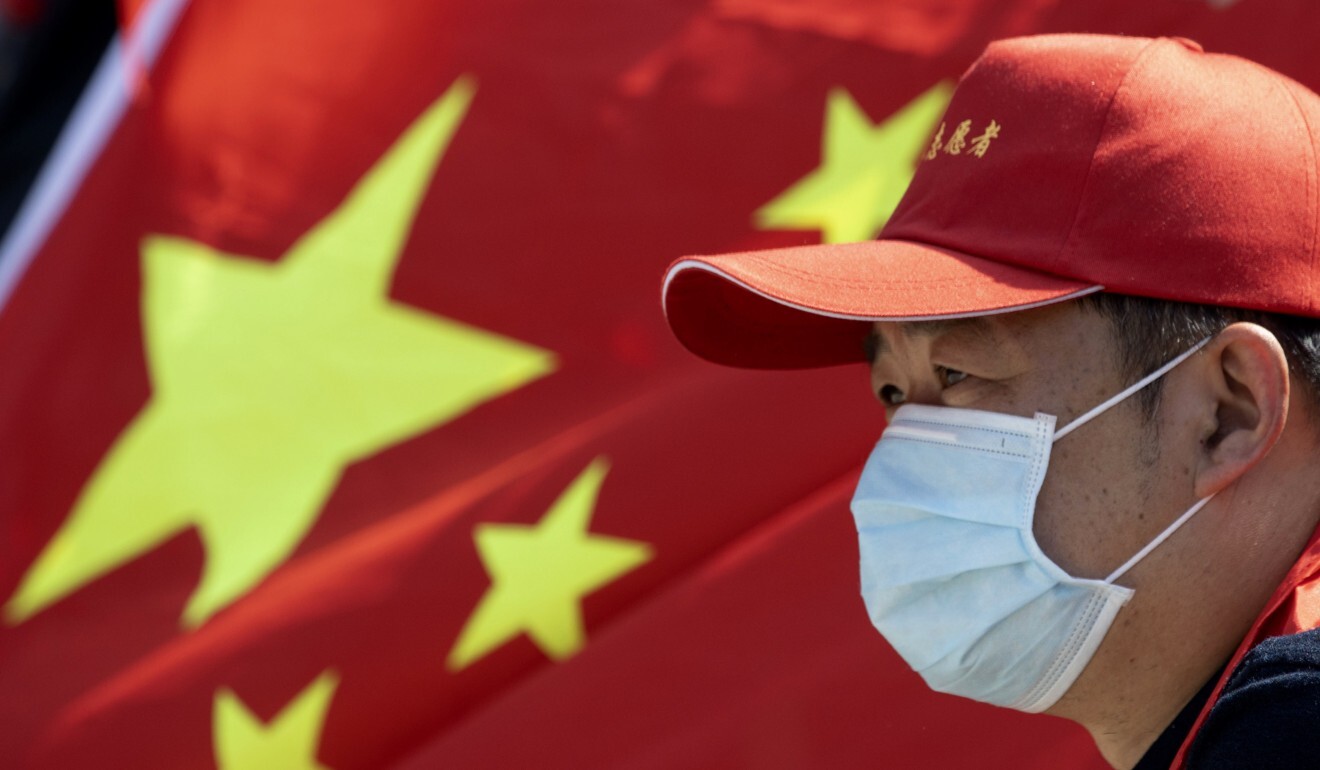China’s nationalism might work at home, but it’s causing upset on the world stage, experts say
- Nationalism is a central part of the Communist Party’s legitimation strategy, but it also threatens to derail the country’s rejuvenation project, observer says
- If the global sentiment turns anti-Chinese, it could jeopardise Beijing’s grand belt and road plan to boost connectivity across Asia and beyond, academic says

The nationalistic sentiment that permeates Chinese social media content may be useful in unifying support for the Communist Party at home, but on the world stage it is more likely to stir up animosity and distrust, observers say.
“This is the great irony of Chinese nationalism,” said Florian Schneider, director of the Leiden Asia Centre in the Netherlands.
“The authorities rely heavily on nationalism as part of their legitimation strategy at home … [but] at the same time, that strategy risks derailing the national rejuvenation project that the authorities have promised their citizens.”
China has more than 854 million internet users and three main social media platforms: WeChat, QQ and Weibo, the first of which is the world’s most popular messaging service and a vital part of everyday life for hundreds of millions of Chinese.
The downside of WeChat’s ubiquity is that it is frequently used as a platform to promote all manner of fake news and propaganda, quite often for the purpose of financial gain.
Last week it was announced that Chinese authorities had deleted more than 150 social media accounts carrying articles suggesting some neighbouring countries longed to be reunited with China.
One of them, titled “Why is Kazakhstan eager to return to China?”, claimed that some ancestors of the Kazakh people shared deep historical ties with China and the Han Chinese bloodline and were eager to return to their motherland.
It caused outrage in Nur-Sultan, with the foreign ministry there summoning Zhang Xiao, China’s ambassador to Kazakhstan, to answer for it.
The piece was first published on the WeChat account of an internet company in the northwest China city of Xian but was later shared on other Chinese websites, including Sohu.com.
The company is also accused of writing 30 similar articles, including “Why is Vietnam eager to return to China?”, which were described by Chinese state media as “fabricated and misleading”, harmful to the national interest and the cause of unnecessary diplomatic friction.

WeChat’s parent company, Tencent, has made some efforts to rid the platform of fake news, but has had only limited success. In 2018, it partnered with hundreds of third-party organisations, including the police and the state food and drug authority, to produce and publish almost 4,000 articles debunking various rumours that had been circulating on the platform.
Schneider said that the fake news articles found on Chinese social media, and especially those related to China’s international image, were a combination of clickbait and nationalism.
“If some people find these statements click worthy, it is likely because such stories of national glory confirm deeply held beliefs about China and its place in the world,” he said.
“Ironically, even though the authorities are now trying to curb the spread of nationalistic misinformation, they are responsible for having created the very context in which such misinformation now seems plausible.”
The patriotic propaganda and jingoistic entertainment that was so deeply embedded in Chinese society fed into this kind of misinformation, he said.
But Zhao Haoyang, a social media blogger, said that despite reports of a new wave of nationalistic content on WeChat, he had not seen it.
“Everybody is free on the internet, they can support ideas or be against them,” he said.
“The number of articles by opinion leaders has decreased, but I haven’t noticed a surge in people becoming increasingly populist or nationalistic.”
Schneider said that it was important for Beijing to present a positive image of China to its neighbours, particularly in the context of the Belt and Road Initiative, its multibillion-dollar trade and infrastructure development programme designed to boost connectivity across Asia, Africa and beyond.
“If foreign public sentiment turns anti-Chinese, it threatens those projects that China is trying to launch across the region and the world,” he said.
“Other governments, whether in Vietnam or Kazakhstan or elsewhere, might find it difficult to justify collaboration with a China whose angry keyboard warriors keep offending their citizens.”
The nationalistic sentiment also spoke to widespread anxieties in other countries that China’s rise might not be as benevolent as Beijing liked to suggest, he said.
Wu Qiang, a former politics lecturer at Beijing’s Tsinghua University, said the nationalistic social media articles reflected a China-centric vision that was inconsistent with the prevailing international order.
“It’s similar to the tribute system back in ancient times that put China in the centre of the world,” he said.
“But this kind of system is one of the key reasons that make the international community worried and uneasy.”
Jonathan Hassid, an associate professor at Iowa State University who researches Chinese politics, said that while the nationalistic sentiment would not do Beijing any good, its was unlikely to have a significant impact, negative or positive, on China’s neighbours, many of which were already suspicious of its intentions.
“China has a long history of conflict and mistrust with many of its nearest neighbours, and although stories like this may exacerbate that, they are unlikely to have a major impact,” he said.